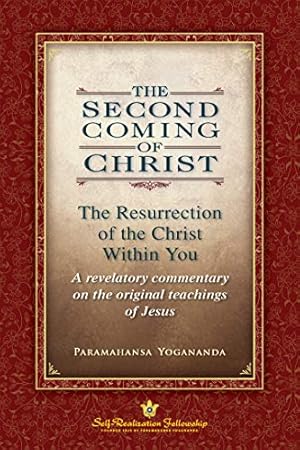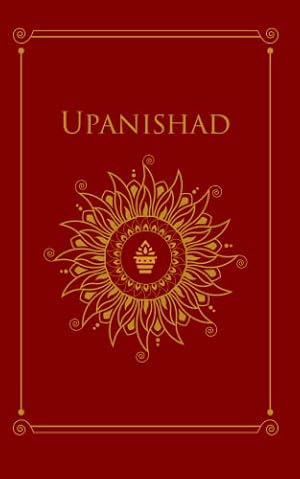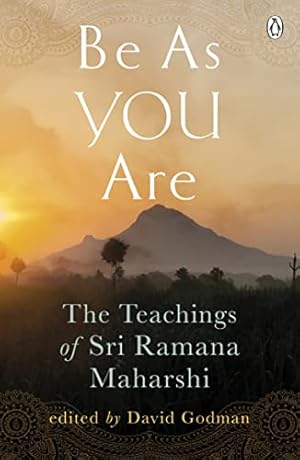Learn more
These promotions will be applied to this item:
Some promotions may be combined; others are not eligible to be combined with other offers. For details, please see the Terms & Conditions associated with these promotions.
Your Memberships & Subscriptions

Download the free Kindle app and start reading Kindle books instantly on your smartphone, tablet, or computer - no Kindle device required.
Read instantly on your browser with Kindle for Web.
Using your mobile phone camera - scan the code below and download the Kindle app.

Follow the author
OK
The Dhammapada for Awakening: A Commentary on Buddha's Practical Wisdom (Dharma for Awakening Collection) Kindle Edition
With a refreshing and timely perspective to ancient wisdom, Abbot George’s unique background shows seekers of inner peace how they can effectively lead a spiritual life in the modern world.
The Dhammapada for Awakening explores the Buddha's answers to the urgent questions, such as “How can I find find lasting peace, happiness and fulfillment that seems so elusive?” and “What can I do to avoid many of the miseries big and small that afflict all of us?”.
Drawing on the proven wisdom of different ancient traditions, and the contemporary masters of spiritual life, as well as his own studies and first-hand knowledge of the mystical traditions of East and West, to Abbot George illumines the practical wisdom of Buddha in the Dhammapada – and more importantly, and make that makes that teaching relevant to present day spiritual seekers.
The Dhammapada is the first collection of Gautama Buddha’s practical teachings for those seeking Nirvana, compiled only three months after his passing away by his enlightened disciples, who named it Dhammapada: The Way of Dharma. It is a distillation of forty-five years of the Buddha’s teaching.
Abbot George says of the Dhammapada, “Over and over in the teachings of Buddha we find that he is giving us only that which can be applied in our daily lives in order to fit ourselves for freedom from all that binds us.”
In The Dhammapada for Awakening you will learn:
- An esoteric understanding of the mind and how to deal with it.
- How we create our destinies by our thoughts and actions, and how we can use that knowledge to shape a better present and future for ourselves.
- What are the obstacles to reaching our full potential, and how we can avoid those obstacles.
Whether a person is Buddhist, Christian, Hindu, simply spiritual, or merely discontent with the status quo of their lives, the universal spiritual principles in The Dhammapada for Awakening will prove helpful in empowering seekers to tread the path to Freedom, that they may become finders.
- LanguageEnglish
- Publication dateOctober 29, 2014
- File size3.4 MB
Shop this series
See full series- Kindle Price:$9.97By placing your order, you're purchasing a license to the content and you agree to the Kindle Store Terms of Use.
- Kindle Price:$15.95By placing your order, you're purchasing a license to the content and you agree to the Kindle Store Terms of Use.
- Kindle Price:$21.93By placing your order, you're purchasing a license to the content and you agree to the Kindle Store Terms of Use.
Shop this series
This option includes 3 books.
This option includes 5 books.
This option includes 7 books.
Customers also bought or read
- Talk to Yourself Like a Buddhist: Five Mindful Practices to Silence Negative Self-Talk
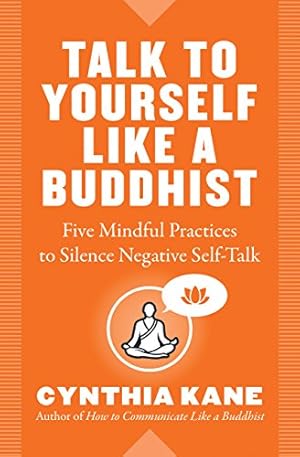 Kindle Edition$0.99$0.99
Kindle Edition$0.99$0.99 - Wisdom of the Buddha: The Unabridged Dhammapada (Dover Thrift Editions: Religion)
 Kindle Edition$0.99$0.99
Kindle Edition$0.99$0.99 - The Upanishads (Easwaran's Classics of Indian Spirituality Book 2)#1 Most GiftedVedas
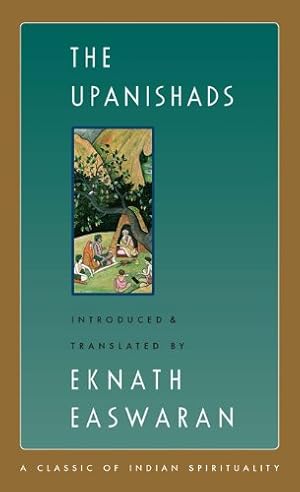 Kindle Edition$7.99$7.99
Kindle Edition$7.99$7.99 - The Unknown Life of Jesus Christ The Original Text of Nicolas Notovitch's 1887 Discovery
 Kindle Edition$0.00$0.00
Kindle Edition$0.00$0.00 - The Living Gita: The Complete Bhagavad Gita: a Commentary for Modern Readers
 Kindle Edition$9.99$9.99
Kindle Edition$9.99$9.99
Customers who bought this item also bought
From the Publisher

In his many pilgrimages to India, Abbot George had the opportunity of meeting some of India’s greatest spiritual figures, including Swami Sivananda of Rishikesh and Anandamayi Ma.

Praise from Readers
Abbot George’s writing is "as informed and informative as it is inspired and inspiring"
–James A. Cox, Editor-in-Chief, Midwest Book Review
"[His] writing is well crafted and stocked with anecdotes, humor, literary references, and beautiful quotes... I found it entertaining as well as illuminating."
–Reverend Gerry Nangle, President, Johrei Fellowship
"Highly recommended for earnest spiritual aspirant, especially those who might need a prod to keep them moving."
–Anna Hourihan, Vedantic Shores Press.
- The Unknown Lives of Jesus and Mary
- Living the Yoga Life: Perspectives on Yoga
- May a Christian Believe in Reincarnation?
- Satsang With the Abbot
- Spiritual Benefits of a Vegetarian Diet
Abbot George Burke
(Swami Nirmalananda Giri)
Abbot George is the founder and director of the Light of the Spirit Monastery (Atma Jyoti Ashram) in Cedar Crest, NM, USA.
He has been studying, teaching and writing on practical spiritual life for over 60 years.
He has written over 20 books on Meditation, Original Christianity, and Original Yoga, as well as the Dharma for Awakening Collection: commentaries on major scriptures of Hinduism, Buddhism, Christianity and Taoism and more,
Below are some of his best sellers:
- Soham Yoga: Its Theory and Practice
- The Christ of India
- The Bhagavad Gita for Awakening
- The Dhammapada for Awakening
- The Gospel of Thomas for Awakening
Editorial Reviews
Review
--Anna Hourihan, author, editor, and publisher at Vedanta Shores Press
"This is a working commentary that often causes moments to pause, ponder, and reflect, inspiring long moments of meditation."
--Ryan J. Dejonghe, AMAZON TOP 1000 REVIEWER
"The writing is well crafted and stocked with anecdotes, humor, literary references and beautiful quotes from the Buddha. I found it to be entertaining as well as illuminating and have come to consider it a guide to daily living."
--Rev. Gerry Nangle
From the Author
From the Back Cover
In The Dhammapada for Awakening, Abbot George Burke draws on various spiritual traditions to illuminate the universal principles of Buddha presented in the Dhammapada. Emphasis is placed on the ways you can understand and apply them in your own personal life.
Reviews:"The writing is well crafted and stocked with anecdotes, humor, literary references and beautiful quotes from the Buddha. I found it to be entertaining as well as illuminating and have come to consider it a guide to daily living."-Rev. Gerry Nangle, president of Johrei Fellowship
"This is a book you'll want to take your time to read and keep as reference to reread. Highly recommended for earnest spiritual aspirants, especially those who may need a prod to keep them moving forward."-Anna Hourihan, editor and publisher of Vedanta Shores Press
"I would go as far as to say this is a must read for anyone trying to further their understanding of not only the teaching of the Buddha but the teachings contained in Christianity and Hinduism as well."-Christopher Todd Cook
About the Author
In his many pilgrimages to India, he had the opportunity of meeting some of India's greatest spiritual figures, including Swami Sivananda of Rishikesh and Anandamayi Ma. During his first trip to India he was made a member of the ancient Swami Order by Swami Vidyananda Giri, a direct disciple of Paramhansa Yogananda, who had himself been given sannyas by the Shankaracharya of Puri, Jagadguru Bharati Krishna Tirtha.
In the United States he also encountered various Christian saints, including Saint John Maximovich of San Francisco and Saint Philaret Voznesensky of New York. He was ordained in the Liberal Catholic Church (International) to the priesthood on January 25, 1974, and consecrated a bishop on August 23, 1975.
For many years Abbot George has researched the identity of Jesus Christ and his teachings with India and Sanatana Dharma, including Yoga. It is his conclusion that Jesus lived in India for most of his life, and was a yogi and Sanatana Dharma missionary to the West. After his resurrection he returned to India and lived the rest of his life in the Himalayas.
He has written extensively on these and other topics, many of which are posted at OCOY.org.
Product details
- ASIN : B00P1D2U18
- Publisher : Light of the Spirit Press (October 29, 2014)
- Publication date : October 29, 2014
- Language : English
- File size : 3.4 MB
- Simultaneous device usage : Unlimited
- Text-to-Speech : Enabled
- Screen Reader : Supported
- Enhanced typesetting : Enabled
- X-Ray : Not Enabled
- Word Wise : Enabled
- Print length : 337 pages
- Best Sellers Rank: #496,431 in Kindle Store (See Top 100 in Kindle Store)
- Customer Reviews:
About the author

Swami Nirmalananda Giri (Abbot George Burke) is the founder and director of the Atma Jyoti Ashram (Light of the Spirit Monastery) in Cedar Crest, New Mexico, USA.
In his many pilgrimages to India, he had the opportunity of meeting some of India’s greatest spiritual figures, including Swami Sivananda of Rishikesh and Anandamayi Ma. During his first trip to India he was made a member of the ancient Swami Order by Swami Vidyananda Giri, a direct disciple of Paramhansa Yogananda, who had himself been given sannyas by the Shankaracharya of Puri, Jagadguru Bharati Krishna Tirtha.
In the United States he also encountered various Christian saints, including Saint John Maximovich of San Francisco and Saint Philaret Voznesensky of New York.
For many years Swami Nirmalananda has researched the identity of Jesus Christ and his teachings with India and Sanatana Dharma, including Yoga. It is his conclusion that Jesus lived in India for most of his life, and was a yogi and Sanatana Dharma missionary to the West. After his resurrection he returned to India and lived the rest of his life in the Himalayas.
He is the author of a number of books on meditation and practical spiritual life, including Soham Yoga: The Yoga of the Self, The Bhagavad Gita for Awakening, The Gospel of Thomas for Awakening, May a Christian Believe in Reincarnation?, and The Christ of India: The Story of Original Christianity.
Customer reviews
Customer Reviews, including Product Star Ratings help customers to learn more about the product and decide whether it is the right product for them.
To calculate the overall star rating and percentage breakdown by star, we don’t use a simple average. Instead, our system considers things like how recent a review is and if the reviewer bought the item on Amazon. It also analyzed reviews to verify trustworthiness.
Learn more how customers reviews work on AmazonTop reviews from the United States
There was a problem filtering reviews. Please reload the page.
- Reviewed in the United States on December 10, 2021I have read numerous translations of the Dhammapada, and was confident that I understood its basic message; but this inspired commentary has unveiled for me the profound depths hidden in the Buddha's words. I am very grateful for it. I am particularly impressed by the author's grasp of the role of Evil, which is to dis-empower and enslave mankind. A solid commitment to what's right doesn't end our fun, but rather our misery and bondage. It fulfills us and completes us. If I could add a 6th star here, I would.
- Reviewed in the United States on June 28, 2014As a reader who is familiar with this author's work I was thrilled to learn that this book had just been published. I feel it may be premature to be reviewing it after only reading it once, as I intend to read it over and over again. There is no modern scholar who in my opinion has a better grasp of these topics than Abbot George. Highly recommended for the sincere seeker who is not content with labels, but wishes to understand. You will find no better living teacher than this one.
- Reviewed in the United States on November 8, 2016Thanks
- Reviewed in the United States on August 29, 2014I deeply appreciate Abbot George's writing style. I am familiar with many of his other writings, so I knew this would be an insightful, yet practical book. And it is. It is written with the authority of his experience and grace. I personally recommend it for those who are drawn to the subject. - Jeff Mathias
- Reviewed in the United States on November 15, 2017I LOVED THIS BOOK! I will keep it as a reference and re-read it from time to time.
- Reviewed in the United States on October 18, 2018explains buddhism. fascinating. simplify the complex
- Reviewed in the United States on September 24, 2014In this compelling book, Abbot George Burke brings his considerable knowledge and background in Christian teachings and the Vedic tradition of India to convey a practical understanding of the teachings of the Buddha.
Having come originally from a Christian background and adopting Vedanta as my path, I appreciate the parallels and comparisons he draws to the Bhagavad Gita and the Holy Bible. Not surprisingly there are many similar or even identical teachings with the Bhagavad Gita since Buddha himself grew up and studied with the sadhus and sages in India.
To illustrate some of the teachings and make them more real to us Abbot Burke uses examples drawn from his personal experience.
The Dhammapada for Awakening is aptly titled. The author gives us the full impact of these teachings, as the Buddha intended, and does not gloss anything over. To illustrate, here’s an excerpt:
“Occasions of hatred are certainly never settled by hatred. They are settled by freedom from hatred. This is the eternal law.” (Dhammapada 5).
[Abbott Burke’s comment] "…That is the nature of the world. It is the violent ward of the lunatic asylum we call the universe. Everyone here is either an active or a recovering homicidal maniac. This is the truth."
This is a book you’ll want to take your time to read and keep as reference to reread. Highly recommended for earnest spiritual aspirants, especially those who may need a prod to keep them moving forward.
- Reviewed in the United States on September 19, 2014This book came to me as a gift. Frankly, I was a bit intimidated by the title and some of the vocabulary in the introduction, thinking I might have to try and memorize unfamiliar words and definitions to get through the book. This is not the case. You can pick it up and find practical ideas and guidance on any page, and the Buddhist terms add depth to the content, which gives perspective to many spiritual practices from the Buddhist viewpoint. At times the book does take some concentration, but the concepts are simple and practical. The writing is well crafted and stocked with anecdotes, humor, literary references and beautiful quotes from the Buddha. I found it to be entertaining as well as illuminating and have come to consider it a guide to daily living.
Top reviews from other countries
 SamReviewed in Singapore on December 31, 2022
SamReviewed in Singapore on December 31, 20221.0 out of 5 stars Biased and misleading
Though the book is well structured, the main narratives presented by the author and the ideas and concepts that shape them appear to be highly biased, and often misleading to the extent that they contradict the teachings of the Buddha as presented and explained by the authoritative Pāli Canon itself and by pretty much anyone else of repute.
The author appears to be trying hard to squeeze the Dhammapada, and by extension the Buddhist teachings into frameworks defined by other religions, and to force concepts from other philosophies into Buddhism where no common ground exists. This is obvious right from early in the first chapter where the author tries to force ideas about the self and God into the Dhammapada in a simplistic and blunt manner that fails to shed light on the subtleties of the deeper explanations, for example in MN22 and other suttas that clearly explain why the concept of self comes into the suttas in the first place, i.e., to introduce the subtleties around the idea of not clinging to the concept of a self. The Girimananda Sutta talks about this in a little more detail, where the concept is explained clearly as something to be used a practical strategy or tool rather than being hung up with concepts of the self or not self and going around in circles.
There are several other such viewpoints and contradictions scattered throughout the book which misrepresent Buddhist teachings, and these are apparent even from a very cursory glance at the rest of the book. This can be very confusing for people without some basic knowledge of Buddhism and one may even wonder whether this is intentional. In summary, this book is not recommended for anyone looking for a legitimate commentary on the Dhammapada.
Edit: corrected grammar for clarity.
 Though the book is well structured, the main narratives presented by the author and the ideas and concepts that shape them appear to be highly biased, and often misleading to the extent that they contradict the teachings of the Buddha as presented and explained by the authoritative Pāli Canon itself and by pretty much anyone else of repute.1.0 out of 5 stars
Though the book is well structured, the main narratives presented by the author and the ideas and concepts that shape them appear to be highly biased, and often misleading to the extent that they contradict the teachings of the Buddha as presented and explained by the authoritative Pāli Canon itself and by pretty much anyone else of repute.1.0 out of 5 stars Sam
SamBiased and misleading
Reviewed in Singapore on December 31, 2022
The author appears to be trying hard to squeeze the Dhammapada, and by extension the Buddhist teachings into frameworks defined by other religions, and to force concepts from other philosophies into Buddhism where no common ground exists. This is obvious right from early in the first chapter where the author tries to force ideas about the self and God into the Dhammapada in a simplistic and blunt manner that fails to shed light on the subtleties of the deeper explanations, for example in MN22 and other suttas that clearly explain why the concept of self comes into the suttas in the first place, i.e., to introduce the subtleties around the idea of not clinging to the concept of a self. The Girimananda Sutta talks about this in a little more detail, where the concept is explained clearly as something to be used a practical strategy or tool rather than being hung up with concepts of the self or not self and going around in circles.
There are several other such viewpoints and contradictions scattered throughout the book which misrepresent Buddhist teachings, and these are apparent even from a very cursory glance at the rest of the book. This can be very confusing for people without some basic knowledge of Buddhism and one may even wonder whether this is intentional. In summary, this book is not recommended for anyone looking for a legitimate commentary on the Dhammapada.
Edit: corrected grammar for clarity.
Images in this review






















